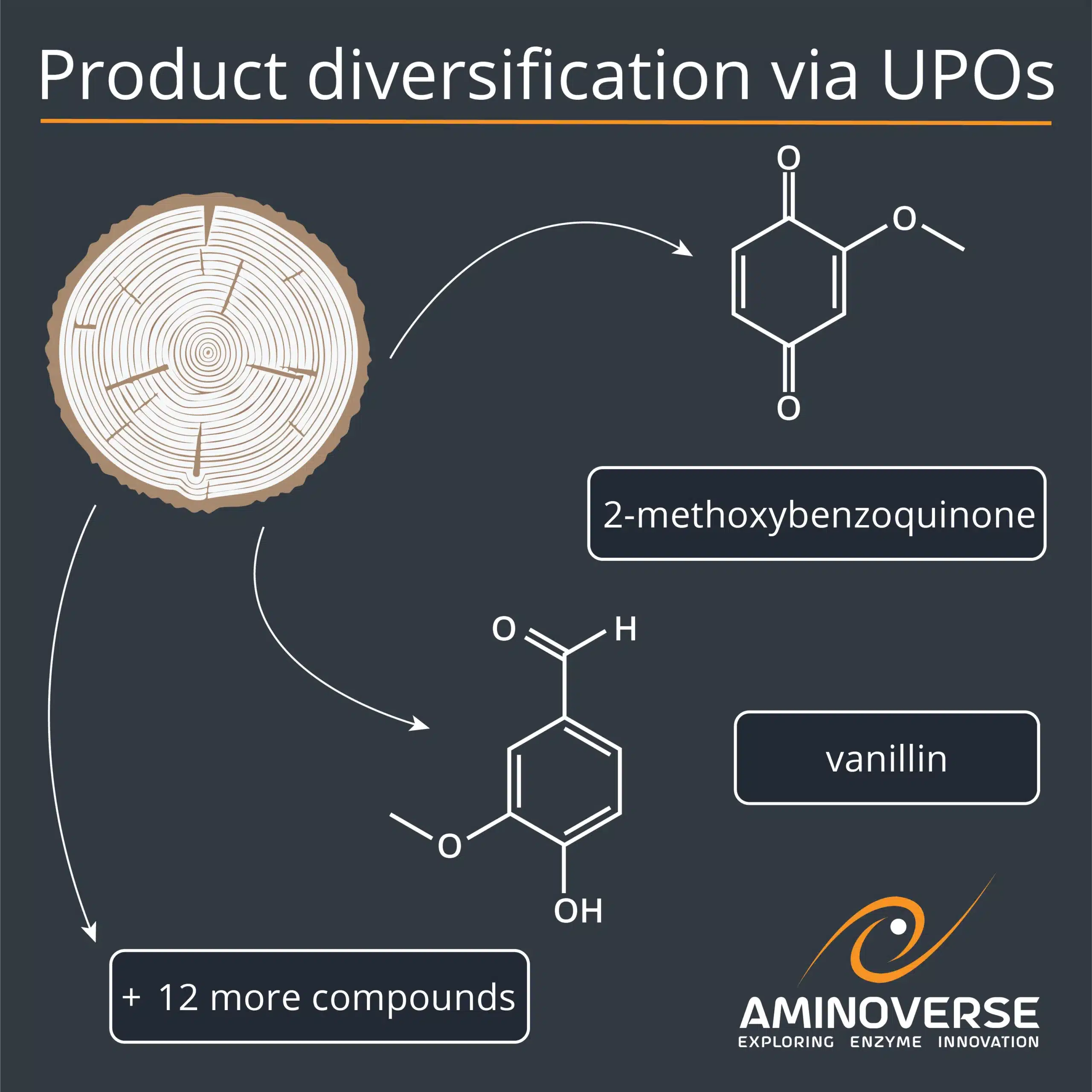
UPOs for selective deprotection in high value synthesis
In their recent work, Lina A. Csechala, Maximilian Wutscher, Verena Scheibelreiter, Stefan Giparakis, Ina Menyes, Thomas Bayer, Christian Stanetty, Florian Rudroff and Uwe T. Bornscheuer demonstrate that unspecific peroxygenases (UPOs) can enzymatically remove alkyl protecting groups. From the Aminoverse portfolio, UPO23 was employed to dealkylate a range of substrates and, at preparative scale, converted benzyl propyl ether with 92 % yield to its corresponding alcohol. Across the study, UPO23 also produced ketones and aldehydes with high selectivity.
This approach is particularly attractive in pharmaceuticals, fine chemicals and agritech, where protecting-group strategies add cost, waste and complexity. UPO23’s ability to accept diverse substrates yet act with precision makes it a powerful tool for ecological and economical deprotection.
Because UPOs tolerate many functional groups and perform oxidative cleavage under mild conditions, their integration could transform synthetic routes. An enzyme panel like Aminoverse’s accelerates discovery of suitable candidates for challenging deprotection steps, enabling greener and more efficient processes across industries.
Unspecific Peroxygenases for the Enzymatic Removal of Alkyl Protecting Groups in Organic Synthesis
“Selective protection and deprotection of hydroxyl groups is pivotal in multistep organic synthesis to circumvent undesired side reactions. Alkyl ethers are highly stable and atom-economic protecting groups (PGs), but demand harsh and hazardous conditions for removal, limiting their utility. Consequently, there is a high demand for biocatalysts as milder, selective, and scalable alternatives, which can be met by a class of heme-thiolate enzymes: unspecific peroxygenases (UPOs). Herein, we report the identification of UPO23 in a commercial enzyme panel as a robust biocatalyst for O-dealkylation reactions. UPO23 exhibited a broad substrate scope and efficiently removed methyl, ethyl, propyl, or allyl groups from protected primary, secondary, tertiary, and benzylic alcohols under ambient conditions. Mechanistic investigations revealed dual reaction pathways for UPO23, hydroxylating either the α-carbon of the alkyl chain of the PG or the substrate scaffold, explaining the formation of deprotected target alcohols as well as further oxidized products. Optimized reaction conditions reduced reaction times from 4 h to 15 min for methyl protected key substrates. Preparative scale reactions with protected benzyl ethers yielded up to 92% of the isolated alcohol products. These findings highlight the versatility of UPO23 and offer scalable, environmentally benign, and enzyme-based deprotection strategies for multistep organic synthesis.
